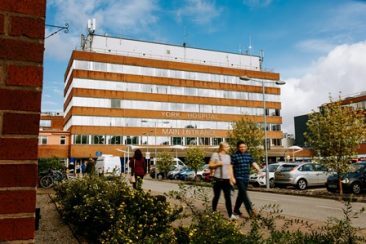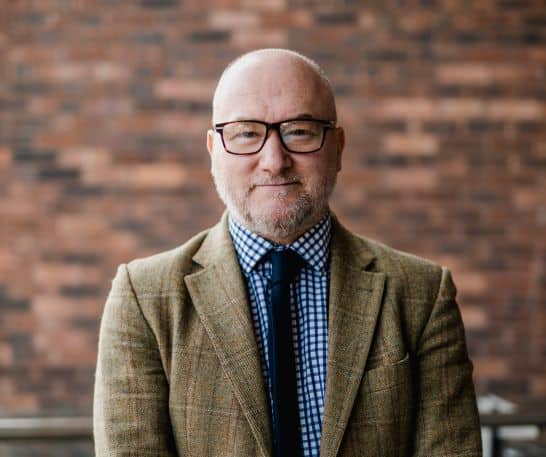A new service launched in January for patients with symptoms that are cause for concern but do not meet the criteria for urgent referral for cancer, has continued to assess patients despite the Covid-19 pandemic.
The new Rapid Diagnosis Centre (RDC) for suspected cancer is clinically led by James Turvill from Gastroenterology and James Haselden from Radiology.

James Turvill said: “When a patient goes to their GP with symptoms such as unexplained and unintentional weight loss, unexplained loss of appetite, fatigue, nausea, bloating or vague abdominal or unexpected or progressive pain, the GP often has a ‘gut feeling’ of a possible cancer diagnosis.
“Unfortunately, in the NHS system is there is no clear referral pathway for patients with serious non-specific but concerning symptoms unless patients have findings that meet the two week criteria for a site specific urgent referral pathway for cancer.
“The rapid diagnostic one stop clinic is an exciting breakthrough for the York Teaching Hospital NHS Foundation Trust and fantastic news for patients who visit their GP with worrying symptoms.”
The early diagnosis initiative involves two Primary Care Networks consisting of 11 GP practices to test and refine the new pathway. Spencer Robinson, Improvement Lead for the rapid diagnosis centre, designed the new service.
Spencer said: “We are very proud to have developed this new cancer pathway from scratch and launched it on time.
“Unfortunately circumstances have changed and we have had to modify the service for a period of time in response to the Covid-19 pandemic. We are still accepting referrals but the ‘one stop approach’ is suspended due to limited access to endoscopy and CT scans.
“Patients are still being assessed and if they are emergency or a high risk are offered diagnostic tests followed by a video or telephone consultation with the RDC consultant regarding outcome and next steps.

“Low risk patients are supported by the RDC Coordinator and RDC Advanced Nurse Practitioner via telephone with six weekly follow up telephone assessments to reassess their symptoms.”
The centre is supported by Cancer Care Coordinator, Laura Brett and Cancer Nurse Specialist Jo Clark.
Laura said: “The patients we have had through the pathway so far have found the one stop approach to be really valuable, even though it has been a long day for them. We are looking forward to being able to resume the full service. The most rewarding part of my role is getting to meet our patients and provide any support they need throughout the RDC pathway.”
Cancer Nurse Specialist Jo Clark has been working with patients with cancer for over ten years.
Jo said: “The RDC pathway is personalised, reduces unnecessary appointments and tests and improves delays in diagnosis. I have seen the effects that waiting for tests and results can have on patients so improving this part of the patients journey is such a positive step. Even though we are limited by the current circumstances, we discuss and review the patient’s pathway frequently to make sure we are supporting them the best way we can through this difficult journey.”
Mikki Golodnitski, Programme Lead for Diagnostics at Humber, Coast and Vale Cancer Alliance (HCV CA) has supported the development of RDCs at York Teaching Hospital NHS Foundation Trust and said:
“Over the last 12 months, the HCV CA Diagnostic team have worked in collaboration with York Teaching Hospital NHS Foundation Trust to pilot a full RDC Pathway for patients with serious non-specific symptoms within Humber, Coast and Vale region.
“RDC pathways support the Alliance’s overarching ambition of achieving faster diagnosis for patients and we are delighted that the York RDC team have managed to effectively adapt their services in order to maintain its benefits to patients during the coronavirus pandemic.
“The Alliance continues to work with stakeholders in each locality to build on work that has already commenced to embed the RDC principles and pathways across the Humber, Coast and Vale region.”
To find out how Cancer Alliances are driving force for change, providing dedicated focus and capacity to deliver improvements in cancer outcomes locally, please click here.
